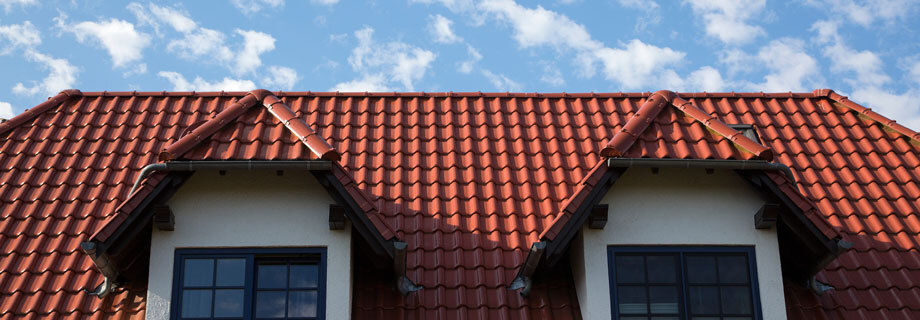Roofing Material Types
There are several roof types, each with unique features, benefits, and disadvantages. Each roofing type has advantages and disadvantages, and homeowners should carefully consider their needs and budget before choosing the best option. Here are the advantages and disadvantages of different roof material types in Southern Arizona.

Clay and Tile Roofs
Clay roofs have been a popular choice for homeowners in Arizona's hot climate for many years. One of the biggest advantages of a clay roof is its ability to keep the home cool during the hot summer months. Clay tiles are made of natural materials that can absorb and dissipate heat, making them an effective choice for keeping homes cool. Additionally, clay roofs are durable and can have a lifespan in Arizona of 50 to 100 years if properly maintained. This means homeowners can avoid the expense and hassle of frequent roof replacements, a major benefit in the long term.
On the other hand, there are also some drawbacks to consider regarding clay roofs in Arizona's hot climate. Firstly, they are a relatively expensive roofing material compared to other options, which can make them less accessible to some homeowners. Additionally, clay tiles can be brittle and prone to cracking, particularly during extreme weather events such as hailstorms. Regular maintenance is necessary to ensure the roof remains intact and fully functional. Finally, clay roofs can be heavy, so proper structural support is required to prevent damage to the home's foundation.
Concrete Roofs
Concrete roofs are becoming increasingly popular for homeowners due to their many advantages. Firstly, they are incredibly durable and long lasting, with a lifespan of up to 50 years if properly maintained. This means homeowners can avoid the expense and hassle of frequent roof replacements, a major benefit in the long term. Concrete roofs are also fire-resistant, making them a safer choice for homes in areas prone to wildfires. In addition, they are also resistant to wind, hail, and other extreme weather conditions, providing a high level of protection to homes.
Another advantage of concrete roofs is their energy efficiency. Concrete is a dense material that provides excellent insulation, helping to keep homes cooler in the summer and warmer in the winter. This can lead to significant energy savings on heating and cooling costs, making a concrete roof a wise investment for homeowners in the long run. Additionally, concrete roofs are low-maintenance, requiring little upkeep beyond occasional cleaning. With their durability, energy efficiency, and low maintenance needs, it is clear why concrete roofs are becoming an increasingly popular choice for homeowners.

Shingled Roofs
1. Shingle roofs are relatively affordable, making them a budget-friendly choice for homeowners who want a high-quality roof without breaking the bank.
2. Shingle roofs are versatile in design, with a wide range of colors and styles to match a home's aesthetic. Shingle roofs are also easy to install, making them convenient for homeowners who want a quick and hassle-free installation process.
3. Shingle roofs are durable and can withstand the hot, dry climate of Southern Arizona.
With proper maintenance, a shingle roof can last up to 30 years, making it a reliable choice for homeowners who want a long-lasting roof that can handle the region's harsh weather conditions.